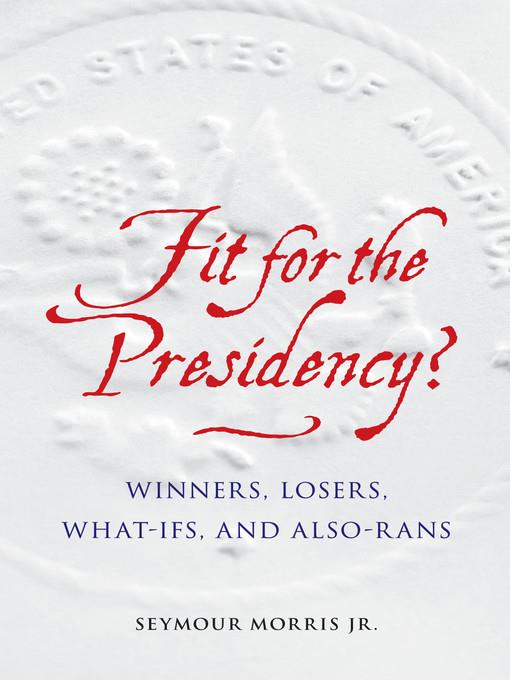
Fit for the Presidency?
Winners, Losers, What-Ifs, and Also-Rans
کتاب های مرتبط
- اطلاعات
- نقد و بررسی
- دیدگاه کاربران
نقد و بررسی

October 24, 2016
Asking what the best qualifications are for becoming a U.S. president, Morris (American History Revised) attempts to quantify these qualities by analyzing the résumés of 15 actual and would-be officeholders. Going from George Washington to Ronald Reagan, he takes an executive recruiter’s approach to scrutinizing his subjects’ experience and character. Morris notes that prior experience plays a major part in determining future success, but the ability to function in a crisis accounts for even more. The incredible success of political lightweight Abraham Lincoln during the Civil War and the failure of the seasoned Herbert Hoover at the onset of the Great Depression epitomize this notion. In laying out the histories of largely forgotten political figures such as DeWitt Clinton and Wendell Willkie, as well as those of the more famous Gen. George Marshall, Barry Goldwater, and Bobby Kennedy, and examining their pitfalls and triumphs, Morris ultimately lets the reader decide what constitutes a great presidential candidate. Given his exceptionally extensive and open-minded analysis, it is a shame that he did not include resumes for the current candidates running for office in this year’s election.

October 15, 2016
On the theory that experience is the best predictor of future performance, Morris (Supreme Commander: MacArthur's Triumph in Japan, 2014, etc.) examines and evaluates, as any hiring committee might, the resumes of 15 men, all past applicants for the job of president.To judge the fitness for the Oval Office of figures as towering as Washington and Lincoln, as dubious as William Randolph Hearst, and as little remembered as William Henry Harrison, the author uses four criteria: "accomplishments," "intangibles," "judgment," and "overall" (a summary of all the information known about the candidate). Notwithstanding the intentional diversity of his list, a couple "candidates" appear out of place: the otherwise estimable Gen. George C. Marshall was never seriously considered for Franklin Roosevelt's vice president, and Jefferson Davis was elected president, yes, but of the Confederacy. Still, the disagreements readers will have with Morris, his methodology, and his assessments are part of the fun of any exercise like this. As he rates the aspirants, the author turns up interesting little nuggets about each: why Jefferson in 1826 thought DeWitt Clinton was the greatest living American and why Lincoln, too, sought to emulate the father of the Erie Canal; how Ronald Reagan devised his own version of shorthand to deliver his seemingly effortless speeches; why Robert Kennedy and Barry Goldwater were perhaps too hot for the presidency, Herbert Hoover and Samuel Tilden, too cold; how Henry Wallace failed to match self-discipline with his prodigious intellect; why Maine's Bowdoin College awarded an honorary degree to Jefferson Davis two years before the Civil War; how Wendell Willkie, without ever holding public office, captured the Republican nomination; why the Democrats twice denied their top honor to William McAdoo, the most accomplished treasury secretary since Hamilton. Why wisdom trumps experience, judgment beats sheer hard work, broad intelligence bests narrow brilliance--these considerations, too, figure into Morris' appraisals. A timely, amusing, and occasionally eye-opening exercise.
COPYRIGHT(2016) Kirkus Reviews, ALL RIGHTS RESERVED.

























دیدگاه کاربران